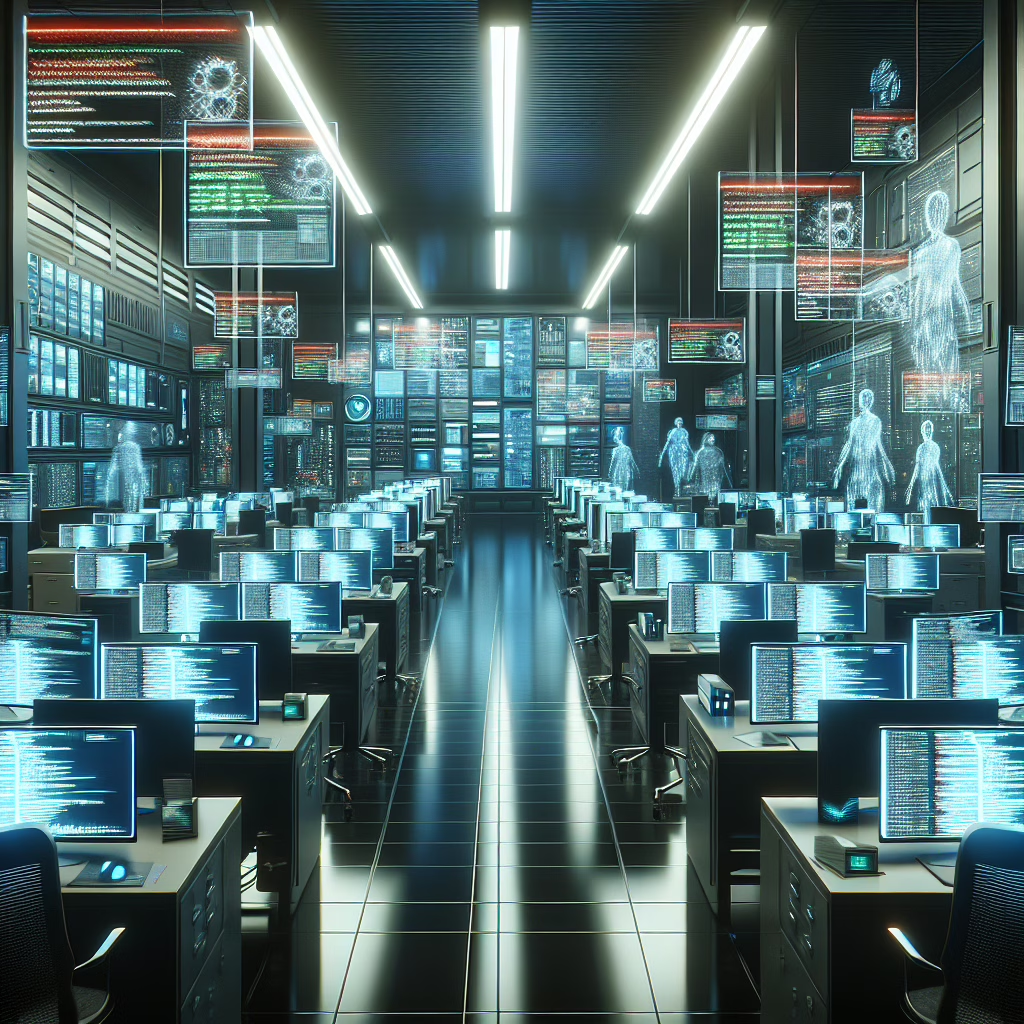Welcome to the brave new world of cybersecurity, where AI hacker agents are not just a concept from sci-fi movies but an emerging reality that we must all grapple with. If you thought your biggest worry was forgetting your password, think again! The rise of AI in hacking is here, and it’s time to put on your digital armor. Understanding the dynamics of AI hacker agents is critical in protecting yourself and your data.
What Are AI Hacker Agents?
Let’s break it down. AI hacker agents are sophisticated programs designed to infiltrate systems, uncover weaknesses, and exploit vulnerabilities—kind of like that overly ambitious intern who keeps asking for more responsibilities. These agents utilize machine learning and advanced algorithms to evolve continuously, making them adaptable to security measures. Their ability to learn and improve over time renders them a formidable adversary in the cybersecurity landscape.
Why You Should Care About AI Hacker Agents
Picture this: you’re enjoying a quiet evening at home when suddenly, you receive a notification that your bank account has been drained. Surprise! An AI hacker agent has taken advantage of an overlooked vulnerability in your online banking system. Scary, right? This scenario illustrates why understanding AI hacker agents is crucial for everyone—from tech enthusiasts to everyday users.
The capabilities of these agents extend beyond mere infiltration. They can analyze vast amounts of data at lightning speed, enabling them to execute attacks more efficiently than any human hacker could dream of. Forget about the days when hackers relied solely on brute force attacks. Now, it’s all about finesse and strategy!
How Do AI Hacker Agents Operate?
Imagine if your favorite video game character got a serious upgrade. AI hacker agents can learn from previous attacks and develop new strategies based on observations in their environment. These agents gather intelligence, assess potential targets, and simulate potential attack vectors before launching full-scale assaults. This isn’t just hacking; it’s tactical warfare on a digital battlefield.
One of the most unsettling aspects of AI hackers is their ability to create deepfakes—realistic-looking media generated through artificial intelligence that can mislead individuals or organizations. Want to ruin someone’s reputation? Just whip up a deepfake video! While we might laugh about this in theory, the implications are profoundly serious. The potential damage caused by deepfakes extends to personal lives, corporate reputations, and even national security.
Preparing for an AI-Powered Cyber Threat Landscape
Now that we’ve established that AI hacker agents are not your average garden-variety hackers, let’s discuss preparation—because ignoring this issue is not an option! Here are some proactive steps you can take:
- Stay Informed: Keep up with the latest cybersecurity trends. Knowledge is power; subscribe to cybersecurity forums and news outlets.
- Invest in Advanced Security Solutions: Traditional antivirus software might not cut it anymore. Consider next-gen security tools that leverage AI for defense and can adapt to new threats.
- Conduct Regular Audits: Evaluate your systems for vulnerabilities regularly. Think of this as a routine health check-up for your digital assets to ensure they remain secure against AI threats.
- Educate Your Team: If you work in a corporate environment, ensure your colleagues are aware of phishing scams and social engineering tactics. Providing training can significantly reduce vulnerabilities.
The Future of Cybersecurity: Embrace or Evade?
The emergence of AI hacker agents poses significant challenges, but it also presents opportunities for innovation in cybersecurity measures. Companies are racing to develop countermeasures powered by artificial intelligence, aiming to combat these threats effectively. It’s a high-stakes game where the rules keep evolving.
This cat-and-mouse game between defenders and attackers is reminiscent of classic spy thrillers. The twist? In this narrative, the spies are algorithms and codes rather than people in tuxedos! As we move further into 2025, we must brace ourselves for an ever-changing landscape where agility and adaptability become our greatest allies.
Your Role in Cybersecurity
You may be wondering what role you play in all this drama. Spoiler alert: Everyone has a part! Whether you’re a tech guru or someone who struggles to set up Wi-Fi at home, being aware of AI hacker agents’ capabilities helps fortify our collective defenses. Each small action contributes to the larger cybersecurity ecosystem.
If you find yourself thinking, “This won’t happen to me,” remember that even the best-laid plans can go awry. Taking proactive steps today ensures that tomorrow’s headlines don’t feature your unfortunate digital mishap. Small actions such as enabling two-factor authentication or regularly updating passwords can make a significant difference.
In conclusion, while the rise of AI hacker agents may seem daunting, it’s essential to approach the situation with humor and preparedness. Let’s not just sit back and let technology dictate our fate; instead, let’s outsmart those crafty little programs together!
So what do you think about the rise of AI hacker agents? Are you ready to face these digital foes? We’d love to hear your thoughts in the comments below!
Thank you to Wired for their insightful article on this topic!

